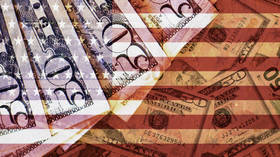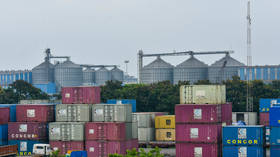Wave of defaults looming – Deutsche Bank

A cycle of boom and bust will return this year and a wave of corporate debt defaults is imminent, particularly in the US and Europe, Deutsche Bank has warned.
According to the bank’s annual study released on Wednesday, defaults by companies will become more commonplace compared with the last 20 years.
Deutsche expects default rates to peak in the fourth quarter of 2024. The bank projected peak default rates to reach 9% for US high-yield debt, 11.3% for US loans, 4.4% for European high-yield bonds, and 7.3% for European loans.
The estimated US loan peak default rate is a near all-time high, compared to a peak of 12% during the 2007-2008 global financial crisis and 7.7% during the dot-com bubble in the late 1990s, the study showed.
“Our cycle indicators signal a default wave is imminent,” Deutsche economists wrote. “The tightest Fed and ECB policy in 15 years is colliding with high leverage built upon stretched margins. And tactically, our US credit cycle gauge is producing its highest non-pandemic warning signal to investors, since before the GFC [Global Financial Crisis].”
Strategists noted that the magnitude and length of the cycle could come as a surprise. “Although our forecasts just presume a return of the Boom Bust cycle, not a GFC-style shock,” they added.
Aggressive interest rate hikes by central banks, including the US Federal Reserve and the European Central Bank as they continue to fight runaway inflation, have raised global recession risks, Deutsche warned. The EU’s largest economy, Germany, has already entered recession.
“We suspect the next recession will be the first since the US tech bubble to inflict more pain on credit markets than the real economy,” experts cautioned. “Corporate leverage is elevated. And global credit markets derive more of their revenue from manufacturing and the sale of physical goods than the real economy at large,” they concluded.
For more stories on economy & finance visit RT's business section













